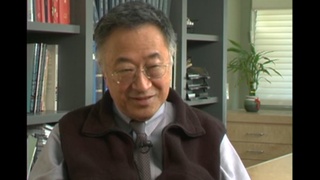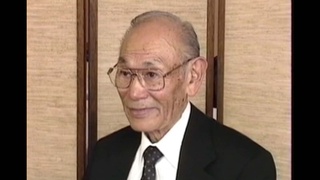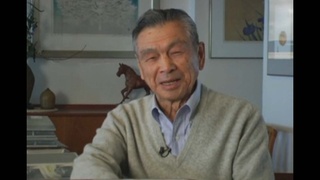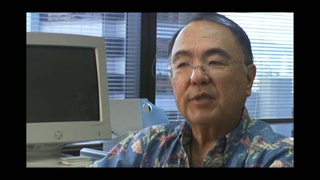Interviews
Lack of political power led to camps
I do think that a lot of what led up to the exclusion and detention of Japanese Americans after Pearl Harbor had to do with the fact that we didn’t have any power. The Japanese Americans had no power—no political power. And that had, of course, largely to do with the fact that our parents were unable to vote. Since they were not citizens and not allowed to be citizens, their interest in politics were pretty minimal, unlike many White American families where, over the dinner table, perhaps, there was discussion of voting for the mayor or voting for a senator, talk like that that might have been common in other White families. Since our parents had no incentive, we didn’t talk about politics. Maybe other Japanese American families did, but at least in my family, we didn’t. And we knew very little about the power of the vote. The fact that we had no representation in any places of power, political power, particularly, was one of the reasons it was so easy to round us up with no objection from any power base to what was happening to us.
Date: August 26, 1998
Location: Virginia, US
Interviewer: Darcie Iki, Mitchell Maki
Contributed by: Watase Media Arts Center, Japanese American National Museum
Explore More Videos

Neighbor took care of hotel business during the World War II
(1918-2023) Nisei Japanese kabuki dancer

Anti-Japanese sentiment at the time of World War II
(b. 1918) Issei businessman in Canada


Choice to move east or go to Japan
(b.1920) Japanese Canadian Nisei. Established the Ikenobo Ikebana Society of Toronto

Different tension between East Coast and Los Angeles
Japanese American Creative designer living in Japan

Remembering December 7, 1941
(1923-2011) Lawyer, MIS veteran, founder of Francis and Sarah Sogi Foundation

Prevailing Within the System
(1923–2006) Community activist. Co-founded the Manzanar Committee

Meeting Japanese Americans from the mainland in MIS
(1923-2011) Lawyer, MIS veteran, founder of Francis and Sarah Sogi Foundation

Awareness of concentration camps as a Japanese American
(1923-2011) Lawyer, MIS veteran, founder of Francis and Sarah Sogi Foundation

His experiences in Chicago after WWII
(b.1929) Pioneer medical researcher in tissue transfer and organ transplantation.

Manhunt
(1919 - 2005) Challenged the constitutionality of Executive Order 9066.

The Final Verdict
(1919 - 2005) Challenged the constitutionality of Executive Order 9066.


Less information about Hawai‘i in mainland
(b.1944) Founder of Kobayashi Group, LLC

A teenager's memories of how a local newspaper misrepresented Japanese Americans
(b. 1925) Draft resister
